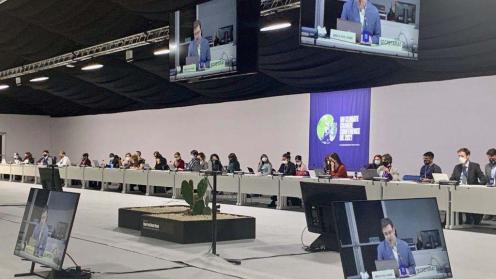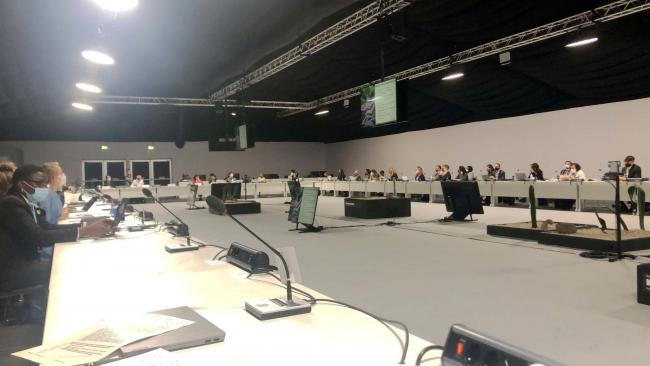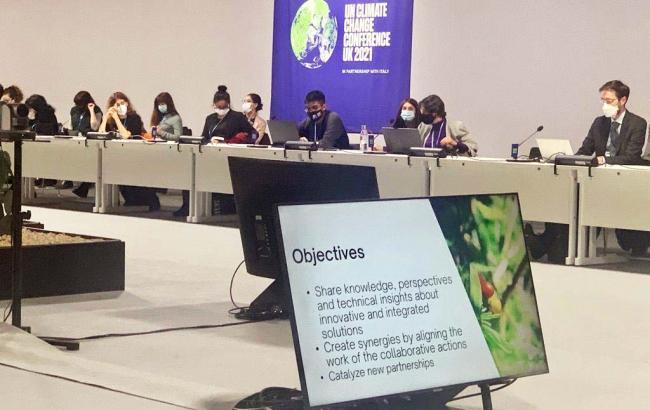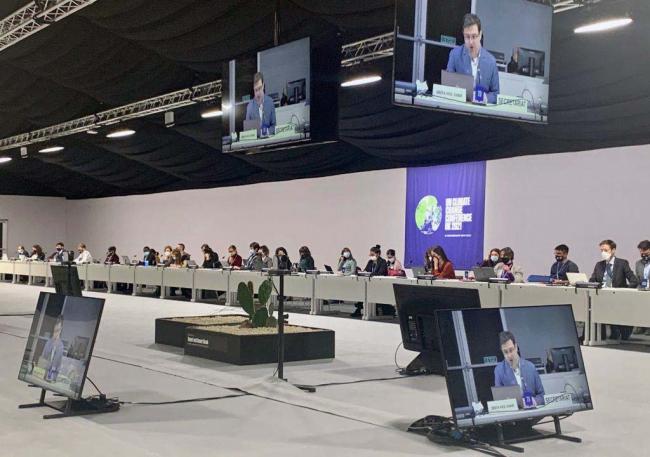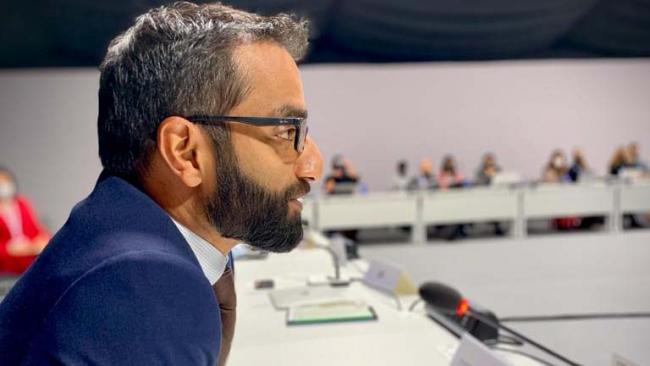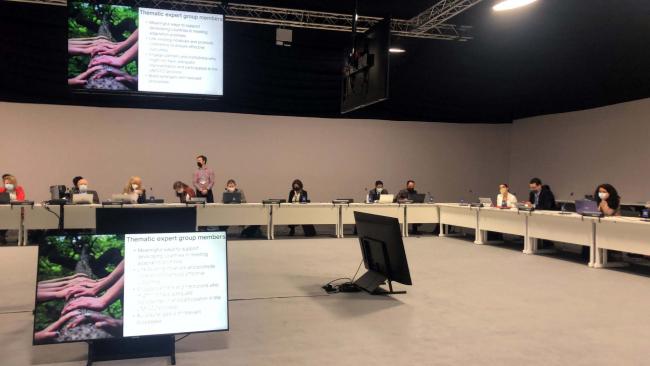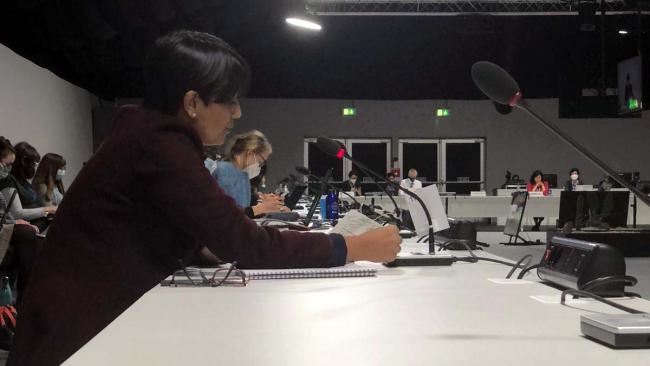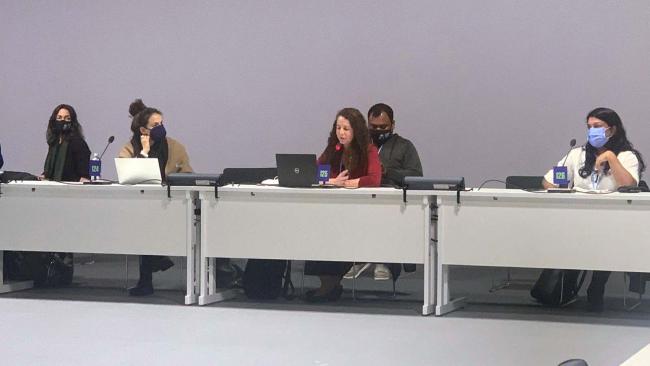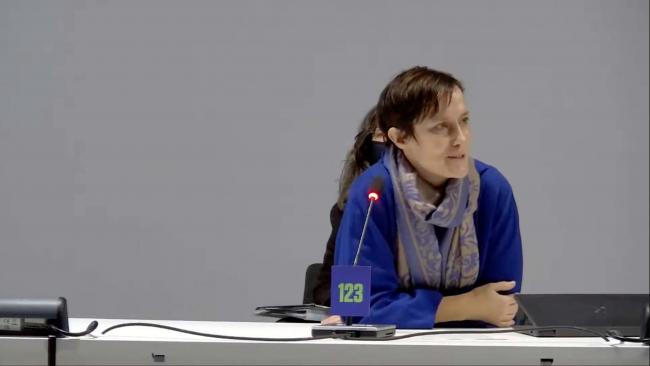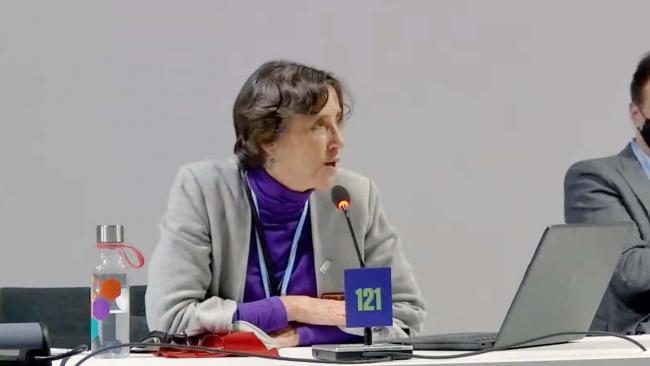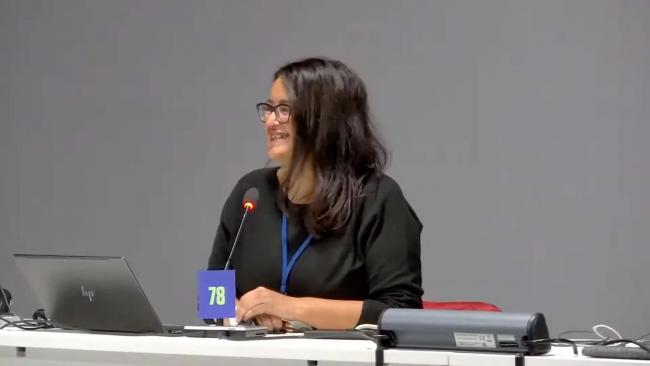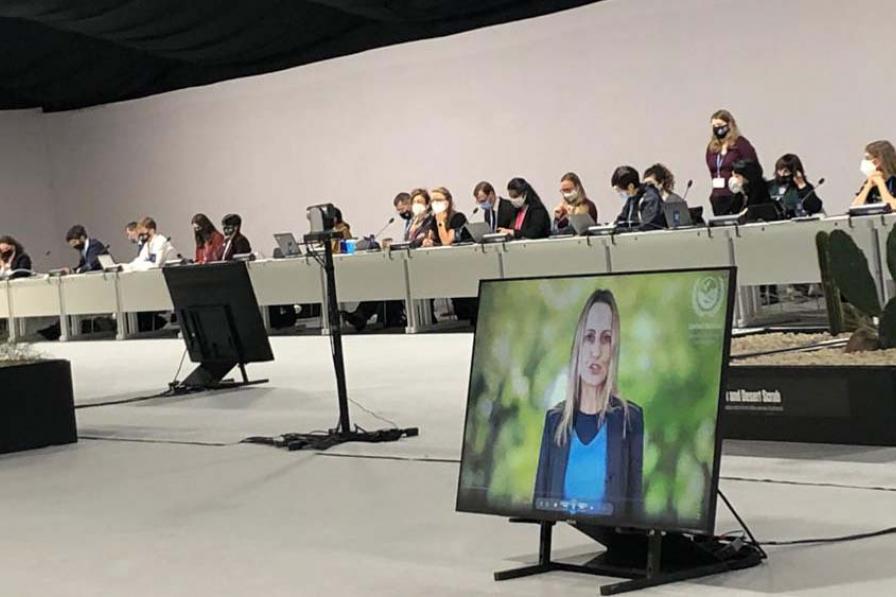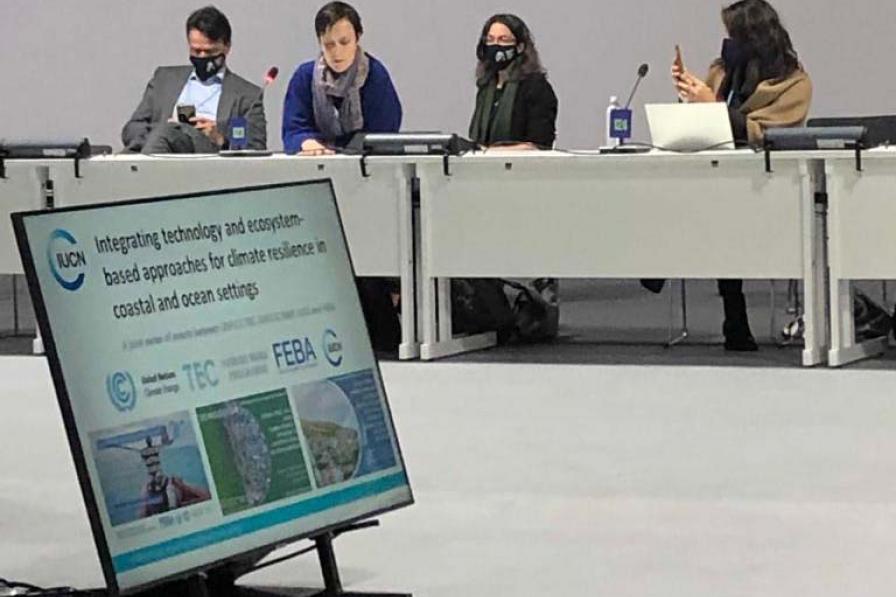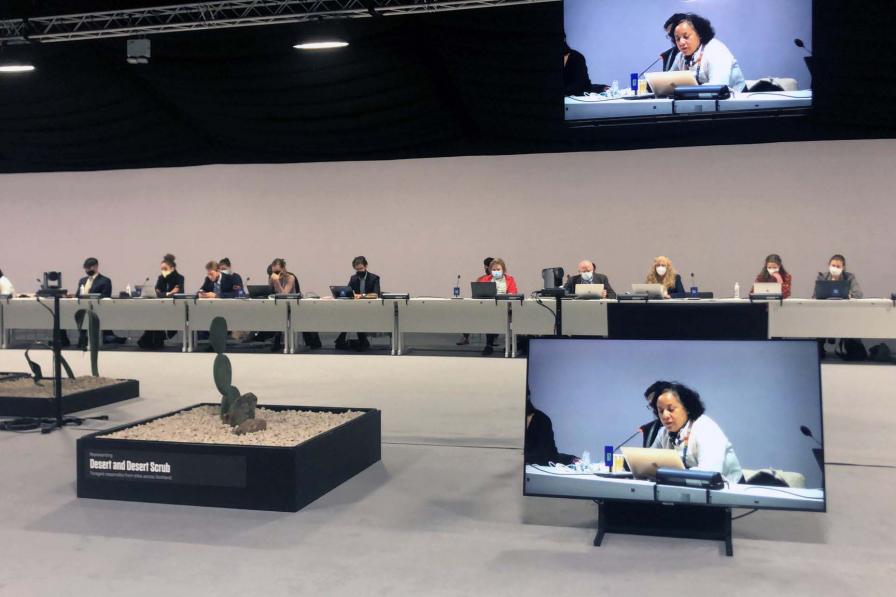14th Focal Point Forum of the Nairobi Work Programme on Biodiversity and Climate Change Adaptation
The Nairobi work programme on impacts, vulnerability and adaptation to climate change (NWP) is a knowledge-to-action hub on adaptation and resilience under the UN Framework Convention on Climate Change (UNFCCC). It supports countries in meeting their adaptation priorities, including formulating and implementing National Adaptation Plans (NAPs). The Focal Point Forum is one of the iterative steps in the NWP’s knowledge-to-action approach and provides an interactive space for dialogue and knowledge sharing among national governments, partner organizations, and thematic experts.
The 14th Focal Point Forum focused on biodiversity and climate change adaptation. It was organized in collaboration with the NWP thematic expert groups on oceans, and on biodiversity and adaptation.
High Level Opening Segment
Kakhaberi Mdivani, Vice Chair, Subsidiary Body for Scientific and Technological Advice (SBSTA), moderated this segment. In a keynote speech, David Cooper, Deputy Executive Secretary, Convention on Biological Diversity (CBD), underlined that the climate change and biodiversity crises are deeply intertwined, and that ecosystem-based approaches can help tackle these crises while also contributing to sustainable development.
Tina Birmpili, Deputy Executive Secretary, UN Convention to Combat Desertification (UNCCD), stressed the need for investments, incentives, and actions on regenerative agriculture, urban planning, effectively-managed natural areas, and land-based investments that build green and blue infrastructure. She underlined that healthy, productive, and resilient land ecosystems should be the centerpiece of the global redesign, and will also create the jobs and livelihood opportunities required to be resilient. Birmpili highlighted the UNCCD’s Land Degradation Neutrality target and its “no net loss in land” approach, which, she said aligns, with NWP objectives and offers tangible synergies to boost adaptation in developing countries.
Vel Gnanendran, Climate and Environment Director, Foreign, Commonwealth & Development Office, UK, called for exploiting the win-wins linked to nature, adaptation, and biodiversity collectively. He said to reform the financial system to be more nature-positive, the UK COP 26 Presidency has been working on the Taskforce on Nature-related Financial Disclosures. He explained that the UK is also helping to make the multilateral development bank system more nature positive.
Technical Segment
This segment was moderated by Janine Felson, Deputy Permanent Representative of Belize to the UN. Fatema Rajabali, UNFCCC Secretariat, provided an overview of the NWP, and its role and engagement of thematic expert groups. She highlighted the NWP Scoping Paper on Knowledge gaps in integrating forest and grassland biodiversity and ecosystems into adaptation strategies and the report on Enhancing resilience of oceans, coastal areas and ecosystems through collaborative partnerships. She said in response to the key findings of these two publications, the NWP will work with the thematic expert groups to close the identified knowledge gaps that serve as barriers to scaling up adaptation action.
National Priorities
Rosa Morales, General Director, Climate Change and Desertification, Ministry of the Environment, Peru, said the mitigation and adaptation measures outlined in Peru’s Nationally Determined Contributions (NDCs) reflect synergies across the Rio Conventions. She gave examples of measures, including those related to protected areas, ecosystem restoration, resource management, and early warning systems, stressing these are co-benefits for biodiversity conversation. Morales highlighted Peru’s National Forest Conservation Program for Climate Change Mitigation, which, she, noted incentivizes Indigenous Peoples to continue their normal way of life and thus preserve forests.
Radha Wagle, Joint Secretary and Chief, Climate Change Management Division, Ministry of Forests and Environment, Nepal, showcased Nepal’s community forest management systems under which almost 40% of forest areas are managed by local communities. She noted they have adopted an ecosystem-based adaptation approach, which is still at the pilot phase, but will be scaled up and focus on critical ecosystems such as mountains.
Collaborative Actions
Lisa Schindler Murray, Senior Manager of Policy and Partnerships, Rare, presented the Coastal adaptation and nature-based solutions for the implementation of NAPs: Considerations for GCF proposal development, which is a supplement to the UNFCCC Technical Guidelines for the NAP Process and was prepared by the NWP Expert Group on Oceans. She explained the supplement aims to provide an easily accessible resource on key considerations and tips to be aware of when developing proposals for the Green Climate Fund (GCF), to ensure such proposals meet the standards of the GCF and nature-based solutions more broadly.
Dorothée Herr, International Union for Conservation of Nature (IUCN), presented on Ecosystems and Technology: Innovative Approaches to Strengthening Coastal and Ocean Adaptation, a series of events jointly organized by the NWP Expert Group on Oceans, the UNFCCC Technology Executive Committee (TEC), IUCN, and the Friends of Ecosystem-based Adaptation network. She highlighted that “there is no one solution that fits all – the question is how we can engage across sectors to implement integrated adaptation approaches.” Herr highlighted key messages including:
- the need for cross-sectoral solutions, knowledge, partnerships, and investments;
- scaling up integrated climate adaptation requires a global vision and collaboration; and
- public, private, and blended finance can play a crucial role in de-risking investment.
Valerie Kapos, Head, Climate Change and Biodiversity Programme, UN Environment Programme World Conservation Monitoring Centre (UNEP-WCMC), discussed ongoing work to promote synergies between biodiversity and climate change adaptation through NAPs and National Biodiversity Strategies and Action Plans. She explained this work aims to explore the potential to increase synergies and facilitate efficiency in planning and implementation of actions at the national level.
Houria Djoudi, Senior Scientist, Center for International Forestry Research (CIFOR), discussed gender inequities in forest and tree-based adaptation. She underlined that women are at the forefront of climate change and “we need to move forward and better integrate them into adaptation initiatives.” She outlined action points for achieving this goal, including: creating synergies by aligning gender adaptation in national priorities; and leveraging new partnerships among national experts and UNFCCC national focal points.
Facilitated Discussion
In the subsequent discussion, facilitated by Michael Weisberg, University of Pennsylvania, and Vositha Wijenayake, Executive Director, SLYCAN Trust, Sri Lanka, participants highlighted the need to: reduce fossil fuel use to help ecosystems adapt; adopt a whole-of-government approach to break silos; and ensure mitigation and adaptation efforts do not negatively affect biodiversity conservation.
Contact
Fatema Rajabali, UNFCCC Secretariat | frajabali@unfccc.int
More Information
14th Focal Point Forum Website
UNFCCC Knowledge-to-Action Hub for Climate Adaptation and Resilience
